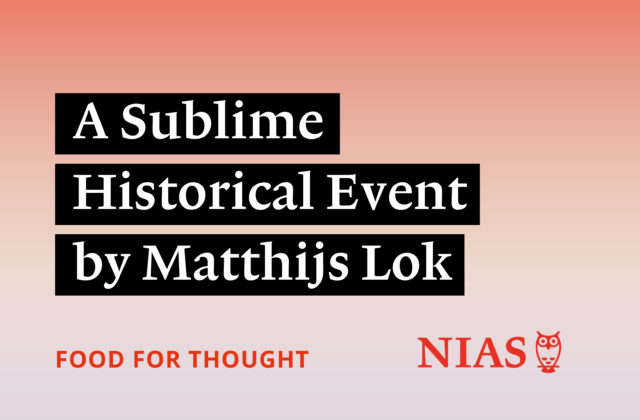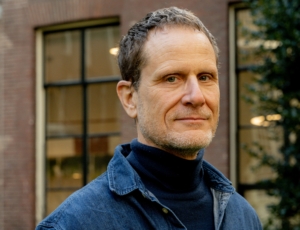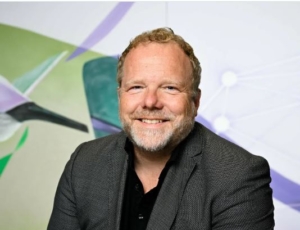Despite their different interpretations of the Corona crisis, commentators and analysts in media all over the world seem to agree that this crisis marks a fundamental and unprecedented rupture in time. Some scientists, politicians, activists and journalists are hopeful that the Corona crisis will destroy traditional structures, enabling a fully regenerated and more sociable local, national and international society. Others present a more dystopian perspective of long-term unemployment, loneliness, ill-health, and a slow collapse of modern society. Some even regard the crisis in (secular) providential terms of punishment and purification.
The common perception is that this pandemic is unique in history and creates a break in time. In a short moment global society and the lives of those who take part in it have been reconfigured: expectations of the future, memories of the past and our idea of the present have radically altered. In the words of the German historian Reinhard Koselleck, the Corona crisis has suddenly and dramatically created a new ‘horizon of expectations’ of our past, present and future. As well as being a health, an economic and political crisis, the Corona pandemic is also a crisis in our perception of time.
Perceptions of threats and opportunities have radically changed in the space of a few weeks, in some instances even days and hours. Whereas until medio March 2020 the main economic threat, at least in the Netherlands, seemed to come from an overheated economy resulting in unaffordable houses, shortages of qualified workers, pollution and mass tourism, now we are presented with the spectre of a fast-shrinking economy and mass unemployment. Overnight the inevitable tourists who ‘swamped’ Amsterdam have disappeared, and the streets of Europe’s historical city centres have become silent. Suddenly few people seem to worry about old demons such as climate warming, levels of nitrogen, and the rise of populism. News about a terror attack in France in February hardly made a mark, at least in the Dutch media. The nightmare of Covid-19 has unexpectantly paled other spectres once deemed a mortal threat.
This radical reconfiguration of expectations of the future, present and past, simultaneously took place on the level of society and on the individual level. Speaking from my personal experience, which is probably similar to that of many others, my horizon of expectations radically changed on Thursday March 12 at 17.02. Before this instant, I was looking forward to an uneventful and pleasant year to complete a book project in the serene surrounding of the NIAS. At 17:02 I was informed by my neighbour at the NIAS seminar that the Dutch government had just announced radical measures to curb the Corona crisis, when the ministerial tone earlier had been one of reassurance. All of a sudden, the orderly and congenial NIAS atmosphere had become one of confusion and excitement. In an hour my main urge was to leave Amsterdam to be with my family in Groningen. The calm future had in few minutes been replaced by uncertainty and liminality, fear and, approximately two weeks later, resignation and acceptance of a new situation with more constraints and fewer possibilities. I had to invent new narratives to situate myself in radically altered spatial and temporal surroundings, despite little outwardly change on the streets, at least in Groningen, or a visible health threat to me or my direct surroundings.
This sense of living through a unique moment in history that presents a rupture with all the familiar before the crisis, is, as any historian will tell you, nothing new. During the Nineteenth century, for instance, similar feelings were voiced during the collapse of the Napoleonic Empire in the Spring of 1814, the murder of the French prince the Duc de Berry in February 1820, the revolutions of 1848, and the cholera epidemic of 1829-1837. It is a pattern in history that people experience major events in their own life as unprecedented and marking an absolute rupture with the past. Perhaps this Corona crisis could be termed a ‘sublime historical event’. According to the Groningen historian Frank Ankersmit, during sublime historical events the past was radically repudiated, and a former identity was discarded ruthlessly. He argues that “the intense historicization and narrativization taking place at the occasion of a sublime historical event may completely dissolve the historical identity of a previous period and replace it with a new one.…’”
At some point in the future, possibly in one or two years, this Corona crisis will lose its temporal immediacy, probably without us being immediately conscious of it. The media will start reporting less on casualties, health policies will appear on page 3 or become the third or fourth news item. Many of the old problems will reappear, some of them in a new guise. New and unforeseen emergencies will appear, and the Corona crisis will recede in our memory, firstly becoming a personal memory to be retold to those younger persons who did not personally experience it. It will become a topic for BA theses, documentaries and novels. The unity in the perception of time will be restored and history will return to its ‘normal’ course again. In the end, it will fall into the hands of specialised historians working at institutes for advanced studies who will insert the Corona moment in longer historical narratives, ending the sublime historical moment.




